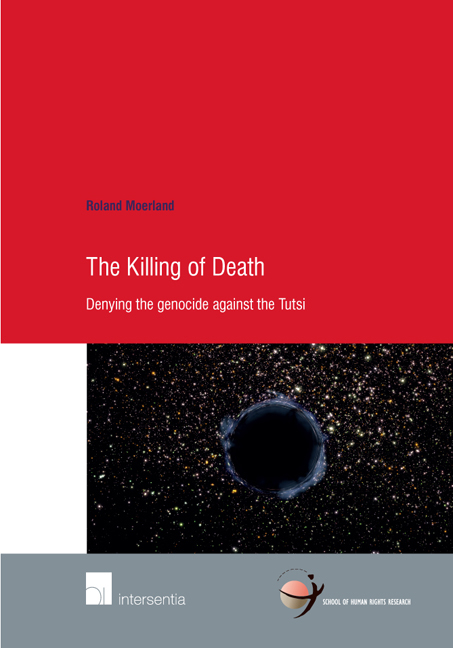Book contents
- Frontmatter
- Dedication
- Preface
- Contents
- List of abbreviations
- Table of figures
- Introduction
- Part I Exploration
- Part II Inspection
- Part III Reflection
- Chapter 6 Broader implications
- Chapter 7 A look in the mirror
- Chronological overview of significant interviews, consultations and events
- Selected bibliography
- Curriculum vitae
- School of Human Rights Research Series
Chapter 7 - A look in the mirror
from Part III - Reflection
Published online by Cambridge University Press: 21 September 2018
- Frontmatter
- Dedication
- Preface
- Contents
- List of abbreviations
- Table of figures
- Introduction
- Part I Exploration
- Part II Inspection
- Part III Reflection
- Chapter 6 Broader implications
- Chapter 7 A look in the mirror
- Chronological overview of significant interviews, consultations and events
- Selected bibliography
- Curriculum vitae
- School of Human Rights Research Series
Summary
Introduction
So far, the actions discussed and deemed problematic in terms of genocide denialism were situated outside the two academic fields that have informed this study, which are the fields of genocide studies and criminology. As a result, the discussion of the implications of the developed approach has so far mainly been an exercise in reflection and not self-reflection. There is, however, no reason why the developed approach would not have implications for the work done in the abovementioned academic fields. The last Chapter therefore discusses whether the developed approach also has implications for the field of genocide studies and criminology. The denial dynamic can namely also be facilitated by scholars in these fields. The issue of scholarly reflection becomes even more pertinent if one acknowledges the fact that scholars often also play a questionable role in genocidal process. Tatz (2003, p. 24) notices that scholars, such as, biologists, anthropologists, psychiatrists, and lawyers have often provided for the building blocks of the genocidal apparatus. That criminologists are not mentioned does not mean they were not involved. On the contrary, criminologists seem to have been deeply implicated in the process of classifying people as abnormal or deviant, thereby contributing to the process by which they were singled out for destruction (Cunneen, 1999; Morrison, 2004; Wetzell, 2000).
The discussion in this Chapter will first address how critical scholarly discussions on how genocide was defined by Lemkin and subsequently by the international community in the 1948 Genocide Convention can have implications in terms of genocide denialism. The field of criminology will subsequently be addressed. In contrast to the field of genocide studies, where intense critical debate seems to be the problem, in the field of criminology traditionally the lack of discussion on the topic of genocide appears to be the problem. The aim of addressing the fields of criminology and genocide studies is not to scrutinise the fields of study exhaustively. Instead, it entails a brief but critical look in the mirror in order to show that the work of genocide scholars and criminologists can also raise questions in terms of genocide denialism. The problem should also not be reduced to specific issues concerning the fields of genocide studies and criminology.
- Type
- Chapter
- Information
- The Killing of DeathDenying the genocide against the Tutsi Roland Moerland, pp. 301 - 340Publisher: IntersentiaPrint publication year: 2016

